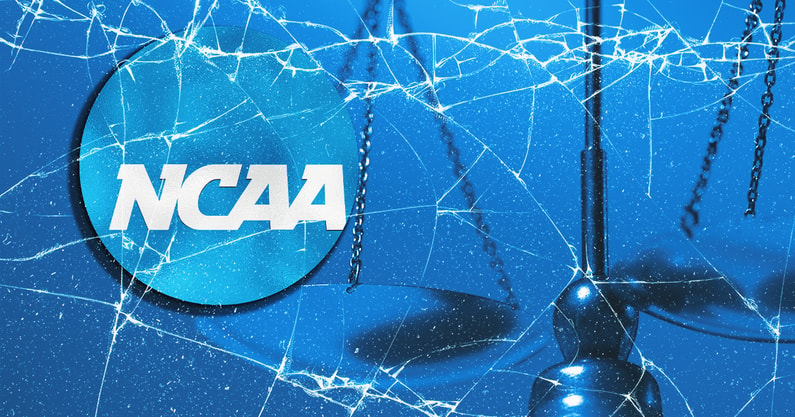As House settlement nears, spotlight returns to potential employee model

As industry leaders work to finalize the long-term settlement agreement in the historic House case, attention has turned once again to the prospect of some athletes being deemed employees of their schools, a scenario that would further reshape the enterprise.
Stakeholders are confronting the potential – if not likelihood – of further industry upheaval, especially after last week’s ruling by a U.S. appeals court kept open the possibility that some athletes are employees of their school, thus entitled to federal minimum wage and overtime under the Fair Labor Standards Act.
One legal expert following the case closely is Laura O’Donnell, chair of Haynes Boone’s Wage and Hour Litigation Practice Group. She said the Johnson v. NCAA case sets the stage for a court to potentially find that some collegiate athletes qualify as employees entitled to compensation.
“Without a doubt, schools competing for top athletes will use high compensation offers as part of recruitment efforts,” O’Donnell said. “Sports through which colleges and universities currently generate significant profits – like football and basketball – will start looking more like professional sports teams.”
Johnson ruling setback for NCAA
Last week’s ruling, yet another courtroom setback for the NCAA, marked just the latest indication that the ecosystem at the highest level continues to move steadily toward a more professionalized model.
Nearly a year and a half after oral arguments were made in the case, the three-judge panel on the U.S. Court of Appeals for the Third Circuit sent the case back to a district court for consideration. In his majority opinion, U.S. Circuit Judge L. Felipe Restrepo appeared to draw a sharp distinction between the majority of college athletes nationwide and those who compete in revenue-producing sports.
“With professional athletes as the clearest indicators, playing sports can certainly constitute compensable work,” Restrepo wrote. “Ultimately, the touchstone remains whether the cumulative circumstances of the relationship between the athlete and college or NCAA reveal an economic reality that is that of an employee-employer.”
Restrepo added: “For the purposes of the FLSA, we will not use a ‘frayed tradition’ of amateurism … to define the economic reality of athletes’ relationships to their schools.”
Top 10
- 1New
Shedeur Sanders reacts
To going undrafted in 1st round
- 2
Picks by conference
SEC, Big Ten dominate NFL Draft
- 3Hot
Joel Klatt calls out
'Trash' Shedeur Sanders narrative
- 4
10 Best Available Players
After NFL Draft 1st Round
- 5Trending
ESPN roasted
For Shedeur Sanders empty couch
Get the On3 Top 10 to your inbox every morning
By clicking "Subscribe to Newsletter", I agree to On3's Privacy Notice, Terms, and use of my personal information described therein.
The ruling establishes a new so-called test, specifying that college athletes may be employees under the FLSA when they perform services for another party; “necessarily and primarily for the other party’s benefit”; under that party’s control or right of control; and in return for “express” or “implied” compensation or “in-kind benefits.”
More litigation coming from Johnson v. NCAA case
O’Donnell said there is “no question” that the Johnson case will lead to an increase in litigation over the employment status of college athletes.
Last week’s ruling created a circuit split with the Seventh and Ninth Circuits, which have found that college athletes are not employees. O’Donnell is keeping an eye on whether subsequent courts follow any of the existing opinions – and, if so, which ones – or chart a different course.
“I expect that the question will ultimately reach the United States Supreme Court,” O’Donnell said.
O’Donnell believes it will be fascinating to see how courts grapple with the distinction between, as Restrepo wrote, “college athletes who play their sports for predominantly recreational and noncommercial reasons” and “those whose play crosses the legal line into work” when faced with an individual athlete’s claim of employment status.
In deciding individual cases, O’Donnell said, will courts consider whether and how much athletic profits can be tied to a particular player? Will players need to show that “the sports played are actually detrimental to their academic performance,” as alleged in Johnson? Will teams have a mix of individuals who are found to be playing for their own benefit and others who are employees and entitled to compensation?